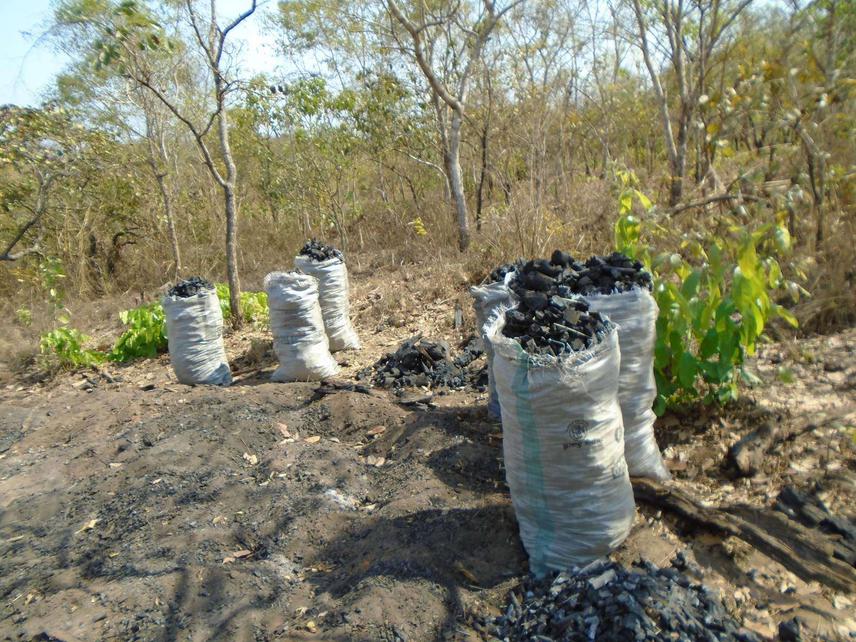Polycarpe Boris Yehouenou Tessi
Other projects
17 Aug 2020
Dogo-Ketou Forest (Benin): Contribution to its Conservation through Resource Status Assessment, Training and Local Community Empowerment
Benin's natural ecosystems are limited but rich in biodiversity. Some of these ecosystems are fully protected to limit human actions and degradation. However, in the face of growing local community needs and the adverse effects of climate change, many of these ecosystems, although of special status, are being reduced by several hundred hectares each year. Most rural communities in Benin depend on forest resources as their main source of livelihood. The Gazetted Forest of Dogo-Ketou (GF-DK) is in a very advanced state of degradation with an increase in fraudulent logging. The locality hosting this forest is known for being one of the most charcoal producers in the country. It is an important source of income for the natives.

Charcoal production from valuable species of the Dogo-ketou forest, Benin.
Furthermore, our previous project focused one of its objectives on the study of the population dynamics and structure of three non-timber forest products (Afzelia Africana, Khaya senegaleensis, Pterocarpus erinaceus) that are on the UICN Red list of threatened. According to our results, all three species face regeneration failure with low density rates per ha. Local populations also face the threats of climate change and poverty and need capacity-building on nature-based solutions to break their dependence on the region's natural forest resources. The project aims to assist regeneration of the three targeted threatened species for their conservation and to ensure the safeguard of the GF-DK.
The objectives are:
(a) to increase the population size of the threatened tree species and their protection,
(b) to promote tree nurseries and beekeeping as alternative livelihood activities for local communities,
(c) to conduct an awareness campaign on the conservation of forest resources and environmental protection in the region.